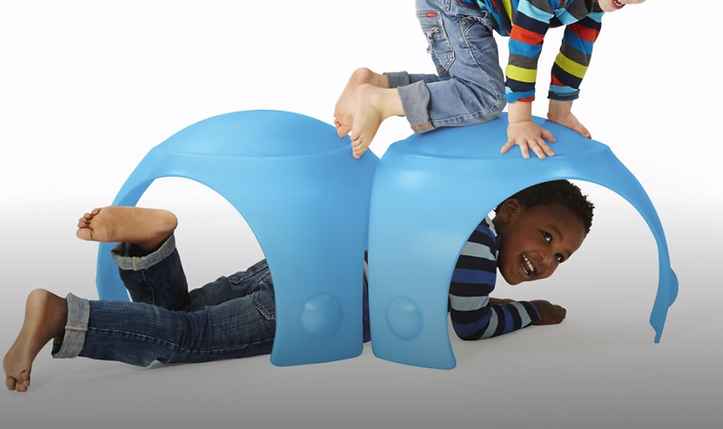Good quality CPD and time for settings to get it embedded.
#533
Developmental Movement Play
Movement and sensory experiences are crucial for a child’s social and emotional development, behaviour and learning. Movement stimulates the neurological system that fires and wires the brain, forming a multitude of connections that lay important foundations for the young child’s future learning and development. We provided a training programme and resources for early years staff, enabling them to support language development through children’s physical literacy.
Audience
Childminders, Head Teachers / School Leaders, Local Authorities, Parent and Toddler/Community Group Leaders, School Teachers, Settings & Early Years PractitionersAimed at
Early Years Foundation Stage, KS1Outcome
Early Years, Language Development, School ReadinessApproach
CPDWhy was the project needed?
Encouragingly, the percentage of children achieving a good level of development at the end of the Early Years Foundation Stage in Ipswich was in line with national average. However, the data showed that children from disadvantaged backgrounds consistently achieved lower levels of development than their non-disadvantaged peers. Disadvantaged children in Ipswich were also less likely to achieve an exceeded level in many of the individual early learning goals (ELGs).
School leaders reported that not all children begin school having developed the behaviours they needed to learn and fulfil their potential, such as agency, resilience and self-regulation. Early years providers in the Ipswich Opportunity Area were interested in the link between physical development and the key areas of early development – Communication and Language and Personal, Social and Emotional Development
What happened and what was the impact?
Developmental Movement Play is a contemporary approach to supporting babies’ and children’s physical development – aiming for confident, expressive, skilled and happy bodies. The programme is recognised nationwide and has been linked to a variety of early years research.
One practitioner from every early years setting, within the Ipswich Opportunity Area, was invited to a fully funded two day course with Penny Greenland MBE, who developed the course in 1989.
What did and didn't work?
Staff now have a much greater understanding on how to give children the opportunity to use the physical environment safely and communicate in a different way. Settings noted an impact on children’s progress in communication and personal social and emotional development, attributed to children having more opportunities to ‘express themselves through movement, work together to help each other and explore the way their bodies move.
Some pre-schools, such as Heathlands, used training grant funding to expand their development movement play provision further, and took part in the Jabadao “Feeling of Me” research project that tracks the impact the programme is having on their children.
How did you measure success?
We asked participants about their confidence is supporting children’s physical development; 86% of respondents rated their confidence level following the training as ‘much higher’ and 14% rated it as ‘higher’.
Wisdom
Ingredients For Success
Is the Project Complete or Ongoing
Several settings went on to implement Youth Sports Trust’s “Healthy Movers” programme – another physical literacy approach that complements Jabadeo effectively.
How is the Project Sustainable
Growing professional networks across Ipswich settings enable practitioners to share their expertise and experience as they embed programmes like Developmental Movement Play.
Cost
48 practitioners took part in the programme, which cost £7,000 in total:, this equated to just £146 per practitioner.
‘The Developmental Movement Play training has transformed children’s behaviour and speech and language within the setting.’ She explained that staff now have a much greater understanding on how to ‘give children the opportunity to use the physical environment safely and communicate in a different way’. She said that they have seen an impact on children’s progress in communication and Personal, Social and Emotional development, and she has attributed this to children having more opportunities to ‘express themselves through movement, work together to help each other and explore the way their bodies move’.
Sunflowers Pre-School in Ipswich have noticed the significant impact that the DMP training has had on their provision - Kylie Ryley, ManagerNext steps to do something similar yourself
These are a list of Big Idea resources that you can use to implement in your setting:
Jabadao's Developmental Movement Play YouTube Channel
Jabadao's Website
Read the EEF Guidance Report on Social and Emotional Learning here
Read the EEF Guidance Report on Improving Behaviour here
Read the EEF Guidance Report on SEND in Mainstream Schools here



If you've got any thoughts and ideas of how this approach could be improved or an positive impact it's had for you, add them below
Login or register now to post any comments